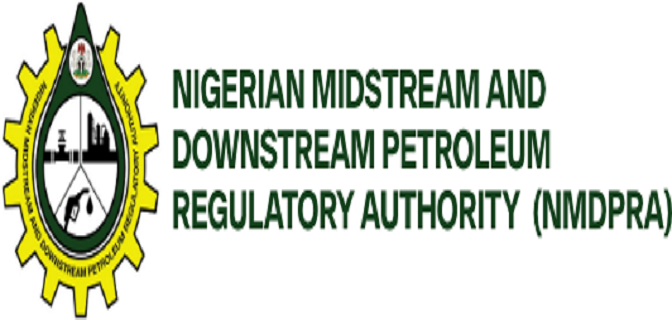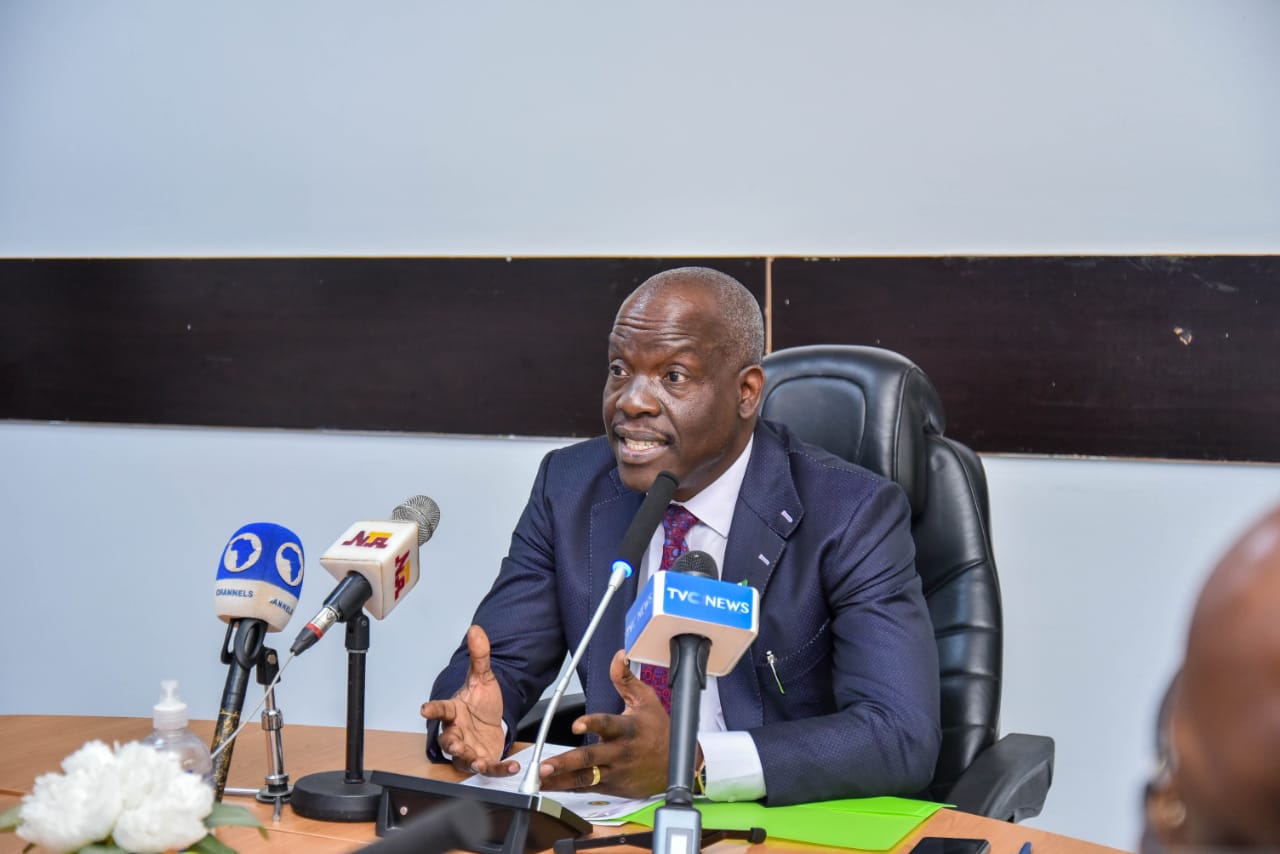Energy
Seplat Energy generates $1.7bn cash flow in 10 years, invests $57m to support communities

Ten years after its initial public offer (IPO) which was held in 2014, Seplat Energy has generated $1.7 billion in free cash flow and invested over $57million to support community projects focused on healthcare, education and empowerment.
These were disclosed by Chief Executive Officer, Seplat Energy, Roger Brown, at a press briefing marking the oil company’s 10-year anniversary of dual listing at the Nigerian Stock Group (NXG) and the London Stock Exchange (LSE) in Lagos on Thursday.
Free cash flow is defined as “the money a company has left over after paying its operating expenses (OpEx) and capital expenditures (CapEx),” according to Investopedia.
Brown explained that Seplat Energy has made a significant progress post-IPO, acquiring eight onshore blocks in the Niger Delta and generating an average annual FCF of $264m.
With over 500 direct staff, the company, now known as most successful indigenous energy company in Nigeria, has supported hundreds of jobs indirectly in communities and the supply chain.
“Our success story driven by operational excellence, strong partnerships and credibility in international capital markets,” Brown told journalists.
At a point when firms evade and avoid taxes, Seplat Energy has made enormous contributions to the growth of the Nigerian economy.
Post-IPO, it has paid $2 billion in taxes to the Nigerian government since 2014.
Throwing light on this major stride, Eleanor Adaralegbe, Seplat Energy’s Chief Financial Officer-Designate, said the company has made a total of $2.8bn contribution in taxes and royalties to the Federal Government over the past 13 years.
The company’s contribution, according to her, include $1.54 billion paid in royalties; $329m of petroleum profits tax, and $273m on value added tax (VAT).
Others are: $259m of withholding tax, $126m of Pay As You Earn (PAYE), and $276m to the Niger Delta Development Commission (NDDC), among others.
In 2014, Seplat Energy made its intentions clear to become a major oil company in Africa’s most populous nation. As a result, it embarked on a landmark IPO, raising over $500 million on the LSE and the NGX.
Ten years after, Seplat Energy has returned $575 million to shareholders, meaning that shareholders gained additional $75 million as return on their investment. Core dividend to shareholders increased by 20 percent in 2023 to S$12c per share.
“With $575m paid as dividends since our IPO in 2014, we have successfully returned all the capital we raise at IPO,” she noted.
“Dividend has been paid in nine out of past 10 years,” she said, stressing that the main reason for reduced dividend in 2016/17 was the unavailability of infrastructure, particularly the Forcados, which went offline for 16 months.
Seplat Energy acquired Eland Oil & Gas, which was the first acquisition of a United Kingdom-listed company by a Nigerian firm in December 2019. Eland had held participating interests in OML 40 and the Ubima marginal field.
The Eland investment followed earlier acquisitions such as Belema Oil Producing (an energy exploration outfit) in February 2015 and Assa North-Ohaji South (ANOH) Gas Processing (an energy refining company) in March 2019.
In June 2013, Newton Energy, a wholly-owned subsidiary of Seplat, reached an agreement with Pillar Oil to acquire a 40% participating interest (non-operated) in the Umuseti/Igbuku fields (OPL 283).
Also in 2015, the group purchased a 40 percent participating interest in OML 53, onshore north-eastern Niger Delta, from Chevron Nigeria Ltd and had a revenue interest in OML 55, south-eastern Niger Delta.
In January 2017, Seplat incorporated a new subsidiary, ANOH Gas Processing Company (AGPC) Limited, a midstream gas company committed to the processing of gas from OML 53 for onward distribution to the local market. In August 2018, the group entered into a shareholder agreement with Nigerian Gas Processing and Transportation Company (NGPTC) to subscribe for equal ownership of AGPC.
The Seplat Energy portfolio now comprises eight oil blocks – direct interests in seven blocks in the Niger Delta area, four of which Seplat operates and one further of revenue interest. The company also established a robust Global Memorandum of Understanding with the local communities in the Niger Delta, setting out rules of engagement and mutual beneficiation.
The major effect of these acquisitions has been to position the company as the leading partner for Nigerian domestic gas supply for the power sector and a significant contributor to the crude supply to the export markets.
They also culminate in delivering key performance indicators such as 478 million barrels of oil equivalent (MMBOE) in 2P reserves, 47,758 barrels of oil equivalent per day (BOEPD) production capacity, adjusted revenue of $1.06 billion, adjusted EBITDA OF $448 million and share value of GBP867.96 million (N1.98 trillion) recorded as at its last reporting period in December 2023. The company has about 588 million shares outstanding on the Nigeria Exchange.
“We are a leading supplier of gas to Nigeria’s domestic gas-to-power market. At times, our gas powered 25-30 percent of Nigeria’s domestic grid,” Brown said.
He explained that the company has over $800million available liquidity and credible access to global capital markets
He added that Seplat Energy has emerged as a strong voice and a thought leader in the African energy landscape.
“We have diversified Seplat Energy investor base, enhancing relationships with current and potential investors across the world.”
Energy
Fuel scarcity: NMDPRA warns marketers against hoarding


The Nigerian Midstream and Downstream Petroleum Regulatory Authority (NMDPRA) in Osun has warned petroleum marketers in the state against hoarding.
The agency also warned residents of the state against panic buying, hoarding and storing of petroleum products at home.
The State Coordinator of NMDPRA, Mr Adekunle Adeyemo gave the warning while speaking with journalists on Monday in Osogbo.
Adeyemo said that the surveillance team of the agency would be all out to ensure that no filling stations hoard the product.
He said that any marketers caught hoarding the fuel or engaging in any form of sharp practices would be dealt with in accordance with the dictates of the law.
Adeyemo promised that the agency would intensify its monitoring and surveillance of outlets in line with its regulatory mandate to ensure compliance with quality, quantity and safety of operations.
According to him, the government is doing everything possible to ensure adequate availability of the product, and it will be unfair for independent marketers who have the product in stock to be hoarding it.
“We want to appeal to independent marketers who have petroleum products in stock to stop hoarding.
“It will be inhuman for those who have the product to be hoarding and inflating the pump price.
“The surveillance team of the agency is already out to ensure that those who have the product are dispensing it to motorists at a reasonable price.
“However, any filling station caught hoarding the product with the view of inflicting pains on the masses will not be spared.
“Yes, there might be a little challenge in the supply process, but relevant government agencies are doing everything possible to ensure that the situation is normalised.
“We will not fold our hands while some few individuals will inflict undue pain on the residents of the state by hoarding the products,” he said.
Adeyemo appealed to petroleum marketers to always adhere strictly to standard safety practices in their filling stations.
He warned that any marketer that violates the standard procedure would be dealt with according to the law.
Adeyemo also appealed to consumers to report sharp practices such as under-dispensing, to the agency for appropriate action.
The NMDPRA boss also warned against storing petroleum products at homes, adding that such can cause a fire outbreak.
He said that people needed to be very careful with how they handle petroleum products.
“Storing of petroleum products at home can result in a fire outbreak, which can lead to the destruction of lives and property.
“We have to be wise, there’s no reason for panic buying or hoarding of the product because the government is doing everything possible towards adequate supply of the product,” he said.
Energy
Students issue 48-hour ultimatum to FG to address fuel scarcity


By Ismail Azeez, Osogbo
Students of the Obafemi Awolowo University, Ile-Ife have issued a 48-hour ultimatum to the government to address worsening fuel scarcity, threatening to hit the streets if the government fails to regulate prices.
The ultimatum was contained in a statement signed by the Obafemi Awolowo University Union President, Abbas Akinremi and obtained by our correspondent on Monday.
The students demanded the revival of the country’s four refineries.
The Union demanded immediate action from the government to curb hoarding practices, and regulate prices.
Akinremi said that they will not hesitate to hit the streets if the government fails to address the fuel crisis which constitutes a threat to their academic pursuit.
According to the statement, “The current plight of students due to the surge in fuel prices and the unavailability of petrol for efficient transportation has reached unprecedented levels. We, as students, can no longer endure the burden imposed by the government’s neo-classical economic policies.
“Last year, when the decision to eliminate fuel subsidies became public knowledge, many, including students, harbored doubts about its impact on the nation’s economy. Even those who supported the removal of subsidies were skeptical, given the absence of concrete plans to alleviate the ensuing challenges.
“Since then, Nigerians, especially students, have been grappling with harsh economic realities. From soaring electricity tariffs to the skyrocketing cost of living; the adverse effects of the government’s capitalist policies have spared no one.
“Despite these challenges, students persist in their pursuit of education and academic endeavors. However, recent events such as fuel shortages and fluctuating prices have left students stranded both on campus and in town.
“And, it has also made students gnash their teeth in excruciating pain because the artificial increase in the price of PMS has affected goods. Despite our pleas, the government has turned a deaf ear. As students, we refuse to accept policies that suffocate us.
“As students of Obafemi Awolowo University, the recent fuel scarcity which is so evident in Ile-Ife town and its environs has rendered us immobile. Public transportation services to campus and even within town are disrupted due to fuel shortages, while fuel stations exploit the situation by unjustly hiking prices. Students bear the brunt of these issues directly, pushing us to our limits.
“We, the students of Obafemi Awolowo University, have been pushed to our Limits. We demand immediate action from the government to address the fuel scarcity, curb hoarding practices, and regulate prices. The government must not test our will by not addressing these demands within the next 48hrs,” the statement read.
Energy
Divestments: Shell assets estimated at 4.96 billion barrels oil reserve – NUPRC


The Nigerian Upstream Petroleum Regulatory Commission (NUPRC) says the Shell Petroleum Development Company of Nigeria Limited (SPDC) assets being considered for divestments have an estimated reserve of 4.96 billion barrels of oil.
The Commission Chief Executive of NUPRC, Mr Gbenga Komolafe disclosed this on Monday in Abuja at the NUPRC-SPDC due diligence divestment workshop.
Komolafe said at the workshop that the assets have reserves of 1.77 billion barrels of condensate, 28.16 trillion cubic feet of associated gas and 28.11 trillion cubic feet of non-associated gas.
The workshop was aimed at discussing the proposed divestment of the participating interests held by SPDC in the SPDC JV Assets, through a sale by the shareholders of all the issued shares of SPDC to Renaissance Africa Energy Company Limited.
The SPDC JV assets are currently operated by the SPDC on behalf of its Joint Venture (JV) partners namely Nigeria National Petroleum Company Limited (NNPC Ltd.), Total Upstream Nigeria Limited, Nigeria Agip Oil Company and SPDC.
“To date, the assets have achieved a cumulative production of 5.35 billion barrels of crude oil, 165. 57 million barrels of condensate, 9.51 trillion cubic feet of associated gas and 3.75 trillion cubic feet of non-associated gas.
“These contribute to the achievement of Nigeria’s crude and condensate output.
“The assets being considered have an estimated total reserve of 4.96 billion barrels of oil, 1.77 billion barrels of condensate, 28.16 trillion cubic feet of associated gas and 28.11 trillion cubic feet of non-associated gas.
“This makes a significant contribution to the nation’s hydrocarbon resources.
“Additionally, these assets hold P3 reserves estimated at 2.85 billion barrels of oil, 850.85 million barrels of condensate, 11.3 trillion cubic feet of associated gas and 12.26 trillion cubic feet of Non-Associated Gas,” he said.
Komolafe said the due diligence meeting would enable the commission to identify a successor who would not only possess the requisite financial resources but also demonstrate the technical expertise to responsibly manage these assets throughout their lifecycle.
He further said that the commission would ensure that the inherent environmental and end-of-life liabilities such as decommissioning liabilities were accurately identified and assigned to the party best equipped to bear the associated risks.
This, he said would necessitate a comprehensive understanding of regulatory requirements, industry best practices and the unique challenges inherent in oil and gas operations.
“To this end, we have implemented robust measures to streamline regulatory procedures and eliminate unnecessary barriers to investment.
“Let me emphasise that the NUPRC wholeheartedly welcomes investment in the Nigerian upstream petroleum sector.
“We recognise the critical role investment plays in driving innovation, creating employment opportunities and ultimately fueling economic prosperity for our nation and its people.
“Therefore, we are always eager to welcome local and international investors who choose to invest in the Nigerian upstream petroleum sector,” he said.
He added that the commission was fully committed to facilitating and supporting investment initiatives that align with national development goals.
Komolafe urged SPDC and Renaissance to engage proactively, adhere to regulatory requirements and work collaboratively with the NUPRC to ensure the successful conclusion of the Shell Divestment.
“As regulators, we will ensure that this evaluation is conducted with precision and impartiality, with a focus on transparency and accountability,” he said.
He lauded President Bola Tinubu for his support and commitment towards ensuring a purposeful leadership that would attract investment and development of the country’s oil and gas sector.
The News Agency of Nigeria (NAN) reports that the NUPRC has developed a Divestment Framework consisting of seven cardinal pillars to guide the assessment of applications for Ministerial consent to the SPDC divestments and other similar divestments
-
capital market2 years ago
Rt.briscoe, FBNH, Others halts negative performance of stock market
-
Finance3 months ago
Court orders Sen. Victor Umeh to repay N136m bank debt to AMCON
-



 Abuja Update2 months ago
Abuja Update2 months agoUNDP, FG partnership needed to achieve inclusion, equity- Minister
-
Abuja Update1 month ago
Banks drive stock market performance with N147bn gain
-



 Business1 week ago
Business1 week agoTingo Group unveils Tingo Electric, Tingo Cola drink at Lagos launch
-



 Health2 weeks ago
Health2 weeks agoCapacity training will reduce migration of health workers- NPHCDA
-



 Infotech4 weeks ago
Infotech4 weeks agoWorld Backup Day: NITDA urges Nigerians to ensure backup of data
-
News4 months ago
Oil thieves sponsoring malicious media campaign against Navy – Spokesman









